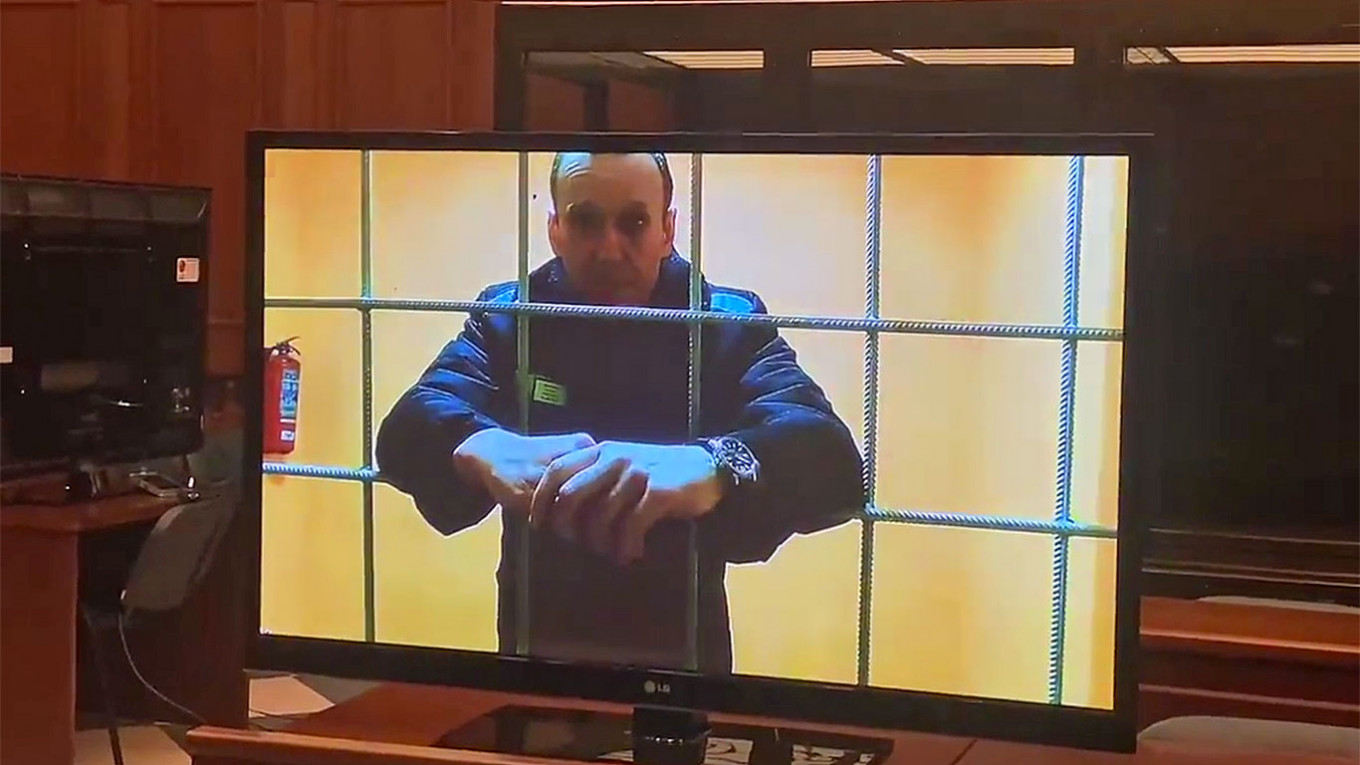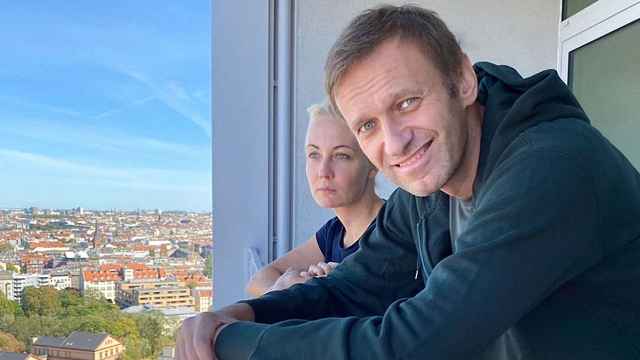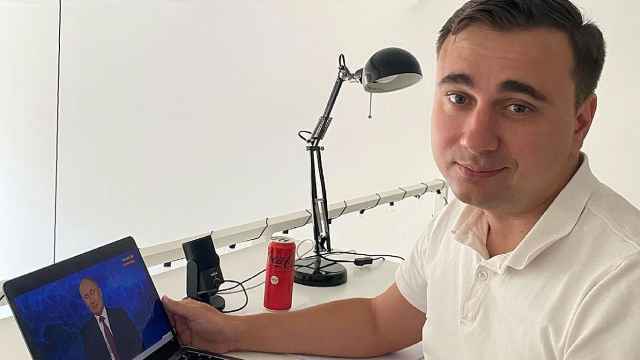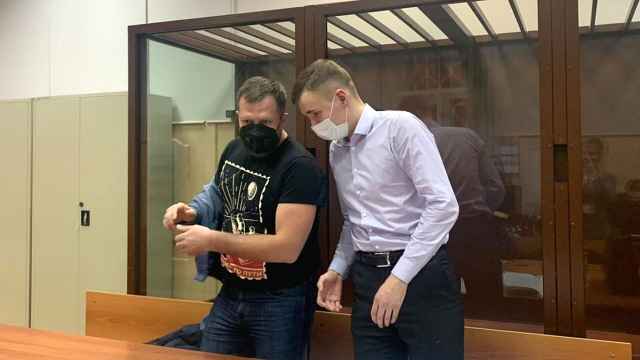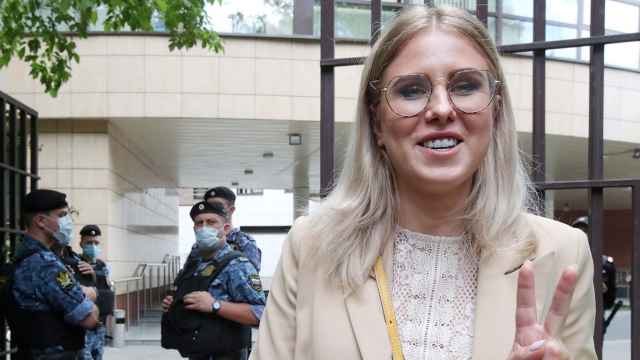Jailed Kremlin critic Alexei Navalny on Tuesday opened an appeal process for a nine-year prison sentence he was handed in March on charges that he and his allies say are politically motivated.
After a brief start to the hearing on Tuesday morning, the court said it would resume the process on May 24 following a request to postpone from Navalny.
His hearing comes as Russian authorities seek to silence remaining government critics and Moscow pushes on with its military campaign in neighboring Ukraine, with thousands killed and some 10 million displaced.
A vocal critic of Russian President Vladimir Putin, Navalny in late March had his jail time extended to nine years after he was found guilty of embezzlement and contempt of court.
He is already serving two-and-a-half years in a prison some 100 kilometers (60 miles) east of Moscow for violating parole on old fraud charges.
On Tuesday, Navalny joined a hearing at a Moscow court via video-link from behind bars at his prison colony to appeal the extension of his jail term.
Wearing a black prisoner uniform, Navalny asked the judge to postpone the hearing by a week so he can have a family meeting before being moved to a different colony, an AFP journalist reported.
"If you confirm the sentence, I will be moved to a regime colony and transferred out of here. In that case my visit will be cancelled," he said.
He also requested extra time to listen to the audio recording of his verdict.
If his new sentence comes into force, the 45-year-old opposition politician will be transferred to a strict-regime penal colony, which will place him in much harsher conditions, including allowing fewer family visits.
The new sentence would replace the old one — which he was handed in February last year — meaning Navalny would remain behind bars for another eight years.
Declared 'extremist'
As part of the new charges, investigators accused Navalny of stealing for personal use several million dollars' worth of donations that were given to his political organizations.
Navalny rose to prominence as an anti-corruption blogger and, before his imprisonment, mobilised anti-government protests across Russia.
In 2018, he campaigned as a presidential candidate but was eventually barred from running in the election that saw Putin secure a fourth term in power.
In his absence, Navalny's team continues publishing investigations into the wealth of Russia's elites that have garnered millions of views on YouTube.
In 2020, Navalny narrowly survived a poisoning attack with Novichok, a Soviet-designed military-grade nerve agent. Despite accusations from Navalny, the Kremlin denied any involvement.
He was arrested on his return from treatment in Germany last year, sparking widespread condemnation abroad, as well as sanctions from Western capitals.
After his arrest, Navalny's political organizations across the country were declared "extremist" and shut down.
Navalny's key allies have since fled Russia and several are wanted by Russian authorities on criminal charges.
Russia has recently ramped up pressure on independent media and non-governmental organizations, declaring many "foreign agents," while others have stopped operating for fear of prosecution.
In an effort to further control the information available to its domestic audience, authorities have blocked access to the popular social networks Instagram, Facebook and Twitter and taken legal action against tech giant Meta, accusing it of spreading "calls to kill" Russians.
A Message from The Moscow Times:
Dear readers,
We are facing unprecedented challenges. Russia's Prosecutor General's Office has designated The Moscow Times as an "undesirable" organization, criminalizing our work and putting our staff at risk of prosecution. This follows our earlier unjust labeling as a "foreign agent."
These actions are direct attempts to silence independent journalism in Russia. The authorities claim our work "discredits the decisions of the Russian leadership." We see things differently: we strive to provide accurate, unbiased reporting on Russia.
We, the journalists of The Moscow Times, refuse to be silenced. But to continue our work, we need your help.
Your support, no matter how small, makes a world of difference. If you can, please support us monthly starting from just $2. It's quick to set up, and every contribution makes a significant impact.
By supporting The Moscow Times, you're defending open, independent journalism in the face of repression. Thank you for standing with us.
Remind me later.


